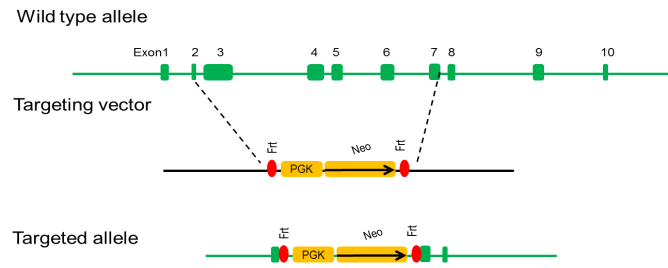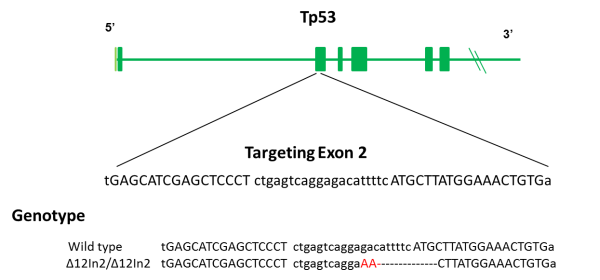自發型腫瘤模型是通過基因編輯技術使小鼠攜帶致癌基因或抑癌基因突變的動物模型,
可以在免疫健全的小鼠體內自發形成腫瘤。相比於腫瘤移植模型,該模型的自發腫瘤組織與人類腫瘤組織的組織病理學和分子特征相似,具有遺傳異質性,並能夠自發發生腫瘤轉移。能夠更好的模擬人類腫瘤疾病的發生發展進程。
P53基因是迄今發現的,與人類腫瘤相關性最高的基因。P53是抑癌基因,有“基因組守護者”的美譽,可調節細胞周期,參與DNA損傷修複;當細胞受損又無法修複時,p53能夠誘導細胞發生凋亡,防止癌變的發生。有研究表明,人類大約一半的腫瘤發生於P53基因突變有關。當P53敲除或突變時,會導致小鼠自發腫瘤的發生,是研究人類腫瘤疾病較好的模型之一。
尊龙凯时人生就是搏官网可提供兩種P53基因相關自發腫瘤模型,分別為B-p53 KO mice和B-p53-KO rats。
B-p53 KO mice
Project background
The Trp53 gene encodes tumor protein p53, which involves in diverse cellular stresses to regulate target genes that induce cell cycle arrest, apoptosis, senescence, DNA repair, or changes in metabolism. P53 protein is expressed at low level in normal cells and at a high level in a variety of transformed cell lines. Mice with homozygous p53 inactivation are developmentally normal but are susceptible to spontaneous tumors.
Targeting strategy

B-p53-KO rats
Project background




 京公網安備: 11011502005564號
京公網安備: 11011502005564號






